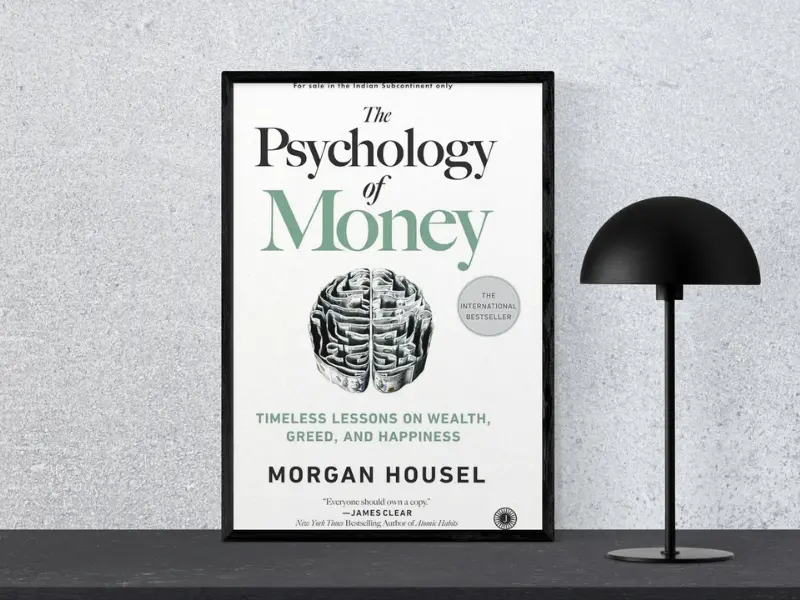
The Psychology of Money – Overview
The Psychology of Money isn’t just about math or investing. It’s about how people think, feel, and behave around money. Morgan Housel explains that financial success is not always about intelligence—it’s about behavior, patience, and mindset. The book has 20 short chapters, each telling a story or lesson about money, investing, wealth, and happiness.
Some chapter highlights:
- No One’s Crazy – Everyone has unique experiences with money. What makes sense for one may not make sense for another.
- Luck & Risk – Life’s outcomes are influenced by both luck and risk, not just skill.
- Never Enough – People often chase more money without knowing when enough is enough.
- Confounding Compounding – Wealth grows slowly over time; patience is key.
- Getting Wealthy vs. Staying Wealthy – Building money is different from keeping it.
- Tails, You Win – A few key decisions or moments often shape most of your financial results.
- Freedom – Financial success is meaningful when it lets you live life on your own terms.
- Reasonable > Rational – Being reasonable with money often beats being perfectly logical.
- You & Me – Everyone has different goals, timelines, and comfort levels with money.
- Room for Error – Planning for uncertainty is more important than precision.
10 Key Lessons from the Book
- Money is about behavior, not numbers
- Be patient; time is your ally
- Avoid lifestyle inflation
- Expect uncertainty, embrace flexibility
- Save consistently, even a little
- Understand the difference between getting rich and staying rich
- Your personal experiences shape your money choices
- Avoid comparing yourself with others
- True wealth is freedom, not just possessions
- Long-term thinking beats short-term gains
10 Ways to Apply These Lessons
- Control spending – Don’t buy what doesn’t make you happier.
- Invest early – Even small amounts grow due to compounding.
- Keep an emergency fund – Protect yourself from risk.
- Avoid debt traps – Especially for non-essential things.
- Focus on your goals, not trends – Ignore what others are doing.
- Plan for the unexpected – Don’t assume the future will be smooth.
- Save consistently – Automate if needed.
- Value time over money – Choose jobs or activities that give freedom.
- Keep perspective – Remember money is a tool, not the purpose.
- Learn from stories – Observe what worked and didn’t work for others.
Conclusion & Why You Should Read It
The Psychology of Money is more than an investment guide. It teaches how to think about money calmly, make better decisions, and reduce stress about finances. Whether you are just starting your financial journey or already investing, this book helps you understand why people behave differently with money and how you can make choices that fit your life.


